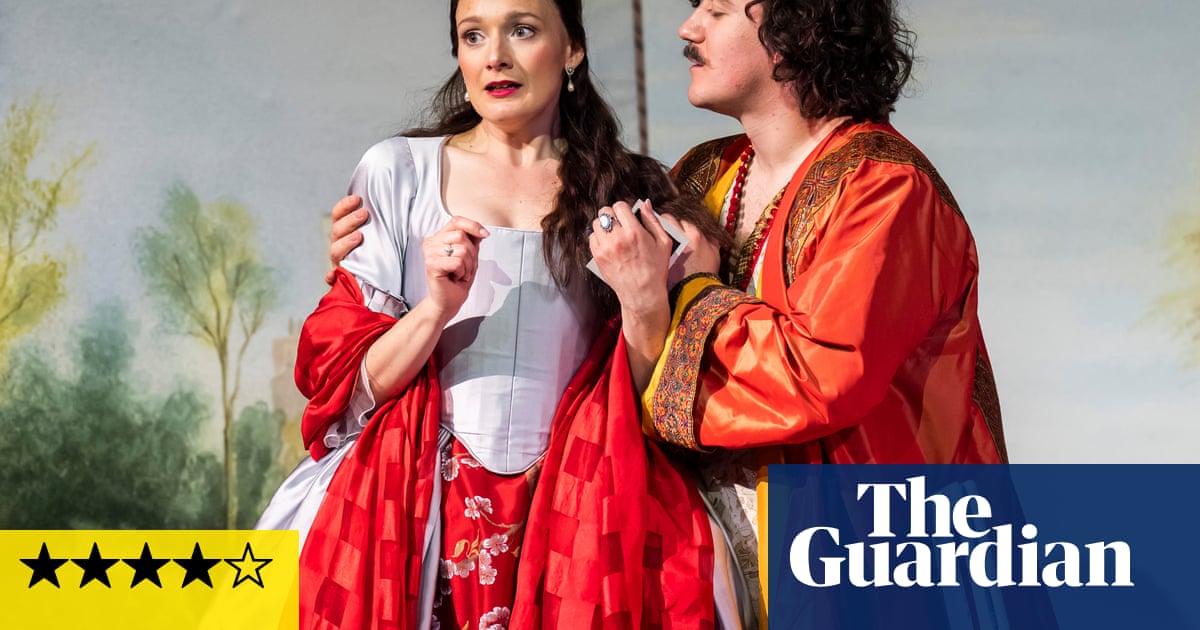Atop its elegant Leicestershire hill, the operatic foundations of the Nevill Holt festival feel more secure right now than those of the beleaguered state funded companies down in the cities. The stable courtyard at Nevill Holt wasconverted into a comfortable 400-seat opera houseseven years ago, and now this year’s festival also offers the first fruits of a tie-up with Leeds-based Opera North, who will take a new production south for the coming five years.
This summer’s Così Fan Tutte offers alternating casts under the assured and energised conducting of Chris Hopkins. But it is not in every respect a wholly new production. Cecilia Stinton’s direction and George Leigh’s designs provide a specially created version of Mozart’s opera for the Nevill Holt residency. Yet there remain traces, notably in the costumes, ofthe Tim Albery productionthat did sterling work for Opera North from 2009. Perhaps it is best to think of this as a country house remix of Albery’s Cosi.
Another survival is that this version is in English. This brings terrific immediacy, even for those who can follow Lorenzo Da Ponte’s punning Italian original. The programme gives no single writer the credit, but it is a witty and succinct translation that adds to the overall fun and pace. “One man is as good as another; and they are all good for nothing,” sings Dorabella, as she and her sister Fiordiligi debate how to deal with their respective suitors.
Stinton places the cynical philosopher Don Alfonso at the centre of things. This Alfonso is not simply trying to prove his misogynistic point about women’s affections. He is trying to prove it inside an opera-within-an-opera version of Così that he is himself writing and directing. Confused? It sometimes gets that way. But it is a device that offers plenty of opportunities for stage farce, as well as adding fresh layers of transgressive ambiguity to an opera that is already full of them.
Vocally, all six principals make a mark. Seán Boylan’s stylish Guglielmo and Egor Zhuravskii’s ardently sung Ferrando are a well-matched pair of officers turned increasingly troubled pawns in Alfonso’s game. Among the women, Ella Taylor’s Fiordiligi is particularly fine in her two formidable arias and for her ability to command expressive softness as well as strength. Heather Lowe’s Dorabella is bright voiced and engagingly acted. Claire Lees knows all the ropes as Despina and has little difficulty stealing the show when she needs to do so.
It helps most of all, though, that William Dazeley is such a well acted and sung Alfonso. Mozart may have denied Alfonso the chance to shine in an aria of his own, but he is very much the puppet-master. Or at least in this version he is until the final moments, when his traumatised charges finally revolt against his loveless philosophy and chase him from the stage.
Nevill Holt festival continues until 22 June
